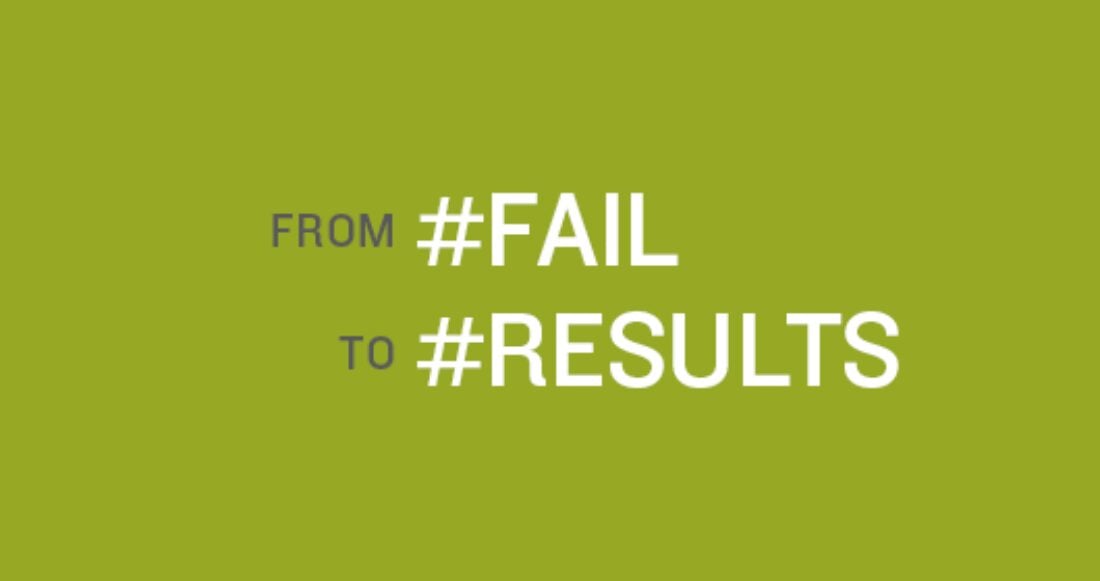Admitting Failure: Learning From Mistakes in Philanthropy

I was recently invited to speak about mistakes and learning in philanthropy at the Grants Managers Network’s annual conference. My talk and panel presentation argued that admitting failures contributes to high-quality implementation, innovation of new strategies and improved governance and transparency. It’s good medicine that doesn’t always taste so good. Yet despite increasing philanthropic interest in mistakes and learning, many foundation staff still find it difficult to have conversations about mistakes.
Many factors contribute to this challenge. First and foremost is the jarring language of mistakes and failure itself, which suggests dismal finality rather than a natural step in the virtuous cycle of trial and error that leads to better grants and better programs. These words also ignore the social sector’s common language of “bright spots” that inspire us to build upon emerging solutions to difficult problems.
I find the mistakes language bracing, but many do not. I suggest foundations and nonprofits adopt language that works for them, such as do-overs, lessons, midcourse corrections, truth-telling or self-reflection. And it may make sense to discuss successes and failures together.
Another question I frequently get is how to start the conversation about mistakes and learning. Should one start with the foundation’s CEO, board of trustees or program directors — or with a few trusted colleagues? There are noteworthy examples of foundation and social sector CEOs — such as Paul Brest, former head of the Hewlett Foundation, or Jim Yong Kim of the World Bank — laying down the gauntlet about speaking truth about mistakes, whether in American Idol type contests, “fail fairs” or “fail fests” or annual failure reports.
My belief is that there are many ways to start conversations about mistakes and at many organizational levels. No matter where you start, key ingredients for productive discussions are sufficient time, a safe place and a champion who supports such learning.
Talking about mistakes only on special occasions is a common mistake, however cathartic it may be to blurt out a failure story. The purpose of talking about these failures is to build our capacity to recognize mistakes earlier and to make smart midcourse corrections. This requires an ongoing commitment to making these conversations a habit.
I learned this lesson the hard way from a group of partner grantees. A few years back, I co-edited a book called Mistakes to Success that compiled mistakes stories in the field of community economic development. We followed up with a toolbox for starting and sustaining mistakes conversations, called the Mistakes to Success Roadmap. We then tested these tools with grantees.
These nonprofit partners taught me two important lessons. First, they wanted to test the tools in the context of regular organizational processes like budget, strategy, or policy priority cycles — not one-off experiences. Second, after a few months, they asked me, the “mistakes guy,” how we had institutionalized mistakes and learning at Casey. I gulped. We had convened a few mistakes potlucks, which involve each participant bringing a mistake to share with the group, and I had shown my supercool mistakes PowerPoint presentation during a staff development session. But we hadn’t made mistakes and learning an organizational habit.
For the past year I have tried to correct my mistake within my team, which focuses on economic opportunity and community change. We have learned about emergent learning techniques that help look for themes across mistakes stories (in the Roadmap toolbox), trained staff in facilitating emergent learning and practiced before- and after-action reviews to build up our ability to recognize mistakes and adapt accordingly. It’s still a work in progress, whether it involves debriefing after a board presentation, a site visit, a new grant-making procedure or a new programmatic investment.
I concluded my Grants Management Network presentations by recommending a few do’s and don’ts for encouraging and sustaining mistakes and learning.
Do
- create time and space to discuss mistakes and learn from them;
- find a champion, testing different tools;
- make it regular; and
- have fun!
Don’t
- blame grantees;
- do it only once;
- gripe rather than find solutions; and
- put off change.
My most important lesson from talking about mistakes with colleagues is that we shared our core aspirations, what kept us up at night and the dilemmas we felt in supporting change. For me, that sharing makes it worth saying tough words like mistakes and failures.
Read more about how others have learned from mistakes in this recent piece from the Philanthropy Roundtable.






